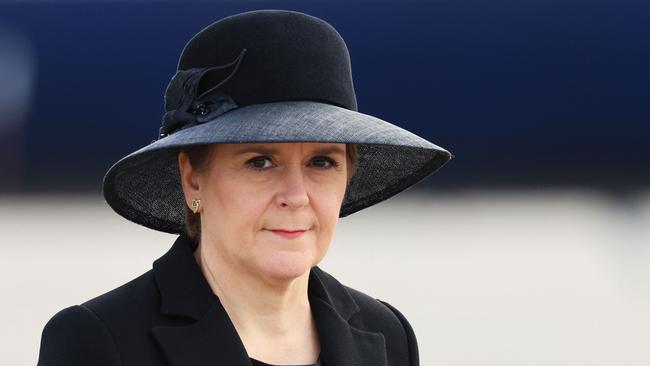Loyalty may not thwart Scottish breakaway
Although the Queen’s farewell to Scotland drew huge crowds, the end of the Elizabethan era has raised questions about the future of the royals in Scotland.

Although the Queen’s farewell to Scotland drew huge crowds, with more than 60,000 packing into Edinburgh, the end of the Elizabethan era has raised questions about the future of the royals in Scotland.
Most Scots still oppose independence and support the monarchy but less so than south of the border, and the loss of the popular, long-serving Queen is likely to re-energise the independence movement, experts say.
King Charles met in Edinburgh on Monday with First Minister Nicola Sturgeon, who heads the pro-independence Scottish National Party and who has been pushing for a second referendum on Scottish independence.
The key question is what impact the change of monarch will have on this debate. The fact the Queen died in Scotland, the first modern monarch to do so, has placed Scotland front and centre of the early part of this nine-day mourning period.
The royal family’s links to Scotland are deep and longstanding. The Queen’s favourite residence was Balmoral, which Prince Albert bought for Queen Victoria.
The royals, going back to Mary Queen of Scots, have stayed at the Palace of Holyroodhouse in Edinburgh, while King Charles went to boarding school in Scotland and Prince William also has Scottish titles. Yet this may count for nothing in the long run.
“There’s no doubt (the Queen) was an integral part of the glue, the cement, that held the nation together, and it’s gone,” professor Adam Tomkins, a public law academic at Glasgow University and former member of the Scottish parliament, told the Financial Times. “It isn’t at all obvious or self-evident that it will be replaced with anything as strong or solid. My sense is this is a moment of frailty, risk, and potentially of change for the Union.”
Even so, pro-independence supporters have their work cut out. Although the royal family is not as popular in Scotland as below the border, there is solid majority support.
A YouGov poll published in May found 75 per cent of Scots think the Queen did a good job compared with 84 per cent across all of the UK. At that time, 55 per cent of Scots said they would vote to remain in the UK compared with 45 per cent who would vote for independence.
A separate poll in May, by the British Future think tank, found more than a third of Scots thought the end of the Queen’s reign would be the right time to abolish the monarchy and become a republic. What’s more, polls show Charles was less popular than the Queen, with only 52 per cent of Scots predicting he would do a good job as King.
The Scots voted against independence in a 2014 referendum and Ms Sturgeon has argued that a new poll should be held in 2024, although new UK Prime Minister Liz Truss has vowed to block the move.
As he waited for the procession of the Queen’s coffin in Edinburgh, Scotsman Innes Miller said he thought the royals were too popular in Scotland for people to vote against them. “I don’t think it will make much difference to the independence movement,” he said. “The Queen was close to Scotland but Charles has also spent a lot of time here and is well liked by the Scots.”
Former army officer Alex Anderson, who was in Edinburgh to pay his respects to the Queen, said he dearly hoped a change of monarch would not weaken the monarchy in his native Scotland.
“Honestly, I would never support breaking away from the UK; we are part of it and will always be,” he said. “I spent 17 years serving the British Army. I’m very proud to be Scottish but I served the British Army and that’s the way it should stay.”
Although the Queen was always careful to stay out of this debate, remarks she made in 1977 were widely interpreted to mean she was against Scottish independence. While she could “readily understand” the feelings driving a reawakening of “historic national identities”, she declared: “I cannot forget that I was crowned Queen of the United Kingdom of Great Britain and Northern Ireland.
“Perhaps this jubilee is a time to remind ourselves of the benefits which Union has conferred … on the inhabitants of all parts of this United Kingdom.”
The SNP’s official position is that it would keep the monarchy as head of the Scottish state even if it became independent.
The Queen’s biographer, Clive Irving, believes the loyalty of many Scots to the royal family “will expire” with her death.




To join the conversation, please log in. Don't have an account? Register
Join the conversation, you are commenting as Logout